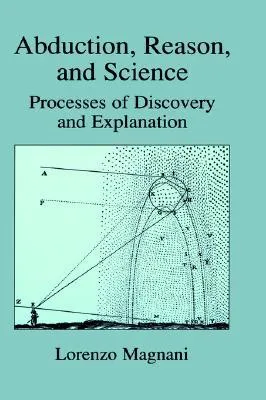Abduction, Reason and Science: Processes of Discovery and Explanation
By (author): "Lorenzo Magnani"
Publish Date:
December 2000
ISBN0306465140
ISBN139780306465147
AsinAbduction, Reason and Science: Processes of Discovery and Explanation
Original titleAbduction, Reason and Science - Processes of Discovery and Explanation
This volume explores abduction (inference to explanatory hypotheses), an important but neglected topic in scientific reasoning. My aim is to inte- grate philosophical, cognitive, and computational issues, while also discuss- ing some cases of reasoning in science and medicine. The main thesis is that abduction is a significant kind of scientific reasoning, helpful in delineating the first principles of a new theory of science. The status of abduction is very controversial. When dealing with abduc- tive reasoning misinterpretations and equivocations are common. What are the differences between abduction and induction? What are the differences between abduction and the well-known hypothetico-deductive method? What did Peirce mean when he considered abduction a kind of inference? Does abduction involve only the generation of hypotheses or their evaluation too? Are the criteria for the best explanation in abductive reasoning epis- temic, or pragmatic, or both? How many kinds of abduction are there? The book aims to increase knowledge about creative and expert infer- ences. The study of these high-level methods of abductive reasoning is situ- ated at the crossroads of philosophy, epistemology, artificial intel1igence, cognitive psychology, and logic; that is, at the heart of cognitive science. Philosophers of science in the twentieth century have traditionally distin- guished between the inferential processes active in the logic of discovery and the ones active in logic of justification.
